The roots of the weed called "Ukrainization of the Kuban"
Goncharenko himself is known for three things. First, he is a stunning example of Ukrainian political flexibility. Like a frightened hare, he galloped from the “green” Soyuz party to the Party of Regions, and when he smelled fried, he quickly joined Poroshenko’s “European Solidarity”.
Secondly, this character during a tragedy in the House of Trade Unions with cannibalistic enthusiasm shot corpses of people who were burned alive on a smartphone. After this "hero" stated that he "cleared the Kulikovo field from the separatist camp."
Thirdly, such a person was not ignored by the affection of home-grown liberals. Back in the 2012 year, Joseph Reichelgauz, a theater director (according to him), handed Goncharenko a letter of honor from the Union of Theater Workers of Russia signed by Kalyagin. What distinguished Alex in the theatrical field is not known for certain. The author assumes that the innate liberal "sensation" of our leaders has already suggested that Alexei is their man.
Thus, we can only laugh at the new initiative of such representatives of the Rada, who have been falling out of hand year after year, and any initiative is working with a vacuum cleaner from the budget. Moreover, such attacks are not uncommon. Political Ukrainian nationalism has always worked only in the paradigm of hatred of Russia, if the Russian factor is removed from this equation, then the meaning of the existence of “Svidomo” will be reduced to the hamster’s life formula: eat, sleep and throw out its legs. But not so simple.
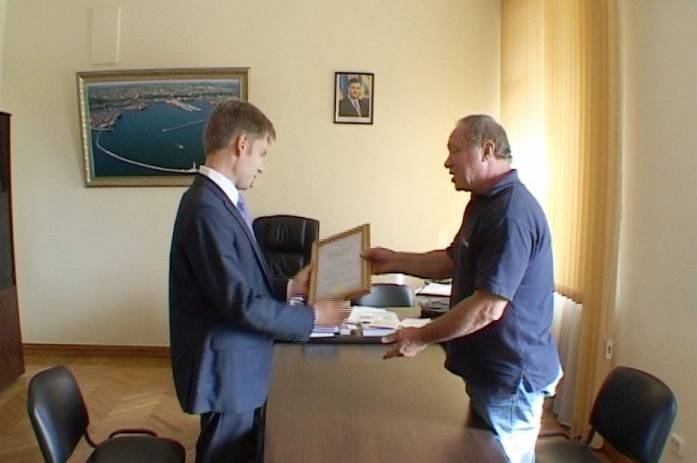
A bit of history
All wet dreams of Ukraine about the Kuban are based on stories the arrival of the Cossacks to Taman and the political chaos that has been going on in Russia for several years, starting with the 1917 year. In fact, in 1792, the Cossacks-Cossacks of the relatively newly formed Black Sea troops landed on the land of Taman granted by Empress Catherine II. That's just they were not pioneers and close neither in the Kuban, nor in the North Caucasus.
The author will not recall the ancient Russian Tmutarakan principality that existed on these lands a thousand years ago. The author will not even mention that the first embassies and military expeditions to these lands were sent even during the reign of John Vasilyevich. It is only worth pointing out that the Cossacks did not land on a deserted wild coast. They were met by fighters of the Tauride Jaeger Corps. And if the Cossacks didn’t raise the St. Andrew’s flag in time, then the Jäger commander, Prime Minister Christopher Rosenberg, who at first mistook the Cossack sailing and sailing vessels for the Turkish landing, there would have been no Cossacks coming to Taman at all. And there would be force majeure to the joy of the local hamsa.
No, no one intends to dispute the contribution of the Cossacks to the development of this land, but this contribution was far from the only and not decisive. And here it is necessary to indicate a piquant detail. The fertile lands of the Kuban were not taken to the Cossacks by beautiful eyes. They were obliged to create and control the so-called Black Sea cordon line, originating in the 1793-1794 years. However, after less than thirty years, the legendary General Ermolov, inspecting the line of fortifications, was beside himself from the complete incapacity of the line. To solve the problem, the general actively recruited the Don Cossacks, who, as a result, arranged the fortifications and the region itself was unlike the previous owners. And the command itself passed to the Don Cossack General Maxim Grigoryevich Vlasov. Thus formed two "Cossacks." Cossacks-Cossacks were called Black Sea inhabitants, and Don Cossacks were called lineers.
Russian hard times
Distemper always allows you to come to the political surface by conceited, greedy and selfish, but not realized personalities. So it was in the Kuban during the years of Russian hard times. In 1917, the Kuban Military Council usurped power in the region. Its representatives themselves have already appointed the regional Council, and in 1918, without any referenda and other things, announced the creation of an independent Kuban People’s Republic. The backbone of these "deputies" were the Black Sea, the descendants of the Zaporozhye Cossacks. Thanks to the active work of provocateurs from the territory of modern Ukraine, supported by Germany, the Black Sea people suddenly remembered their “roots” and became ardent Ukrainophiles.
But from the very first days, self-proclaimed politicians began to do everything to bury their own project. Firstly, a law on “nonresident” and “indigenous Cossacks” was introduced in the “republic”. The latter, by the way, was less than 50% of the total population. “Nonresident” lost their right to vote. Mass oppression began both on a class and on a national basis. Thus, Russian and mountainous non-Cossack peasants, workers and even officers became the subject of profit for the new masters of life. Secondly, the class hypocrisy of the Black Sea inhabitants rejected another layer of the Cossacks - the lineers. Thirdly, while the independents dreamily divided the property of others, in the Black Sea province with the capital in Novorossiysk, the Soviet regime established itself, which the independents hated.
As a result, in February 1918, when the red detachments, which included many lineers, began a campaign against Yekaterinodar, the Kuban Council threw a cry to the village and farm chieftains and Cossacks, who had recently torn their throats about the independence of the Kuban. In fact, it turned out that the new masters of life, surfaced in a wave of unrest, were only occupied with their financial affairs and the imposition of sole authority in their villages. And even more so nobody was in a hurry to defend the “capital”. As a result, the red detachments under the command of the Don Cossack Alexei Avtonomov entered Yekaterinodar almost without firing a shot. At that same time, the Cossack troops of the Rada fled north, capturing the entire treasury of a whole region.
The Kuban Rada returned exclusively on the bayonets of the Volunteer Army of General Denikin. A strange union of independents and Denikin stood exclusively on hatred of the Reds, since Anton Ivanovich himself despised his "allies" for bragging, rural thinking, greed and sloppiness. This "union" was a huge mistake Denikin. The Ukrainophil Cossacks refused to obey orders without the approval of the head of the Kuban Rada and made a mess in the ranks of the troops. In addition, the Kuban Council was in constant contact with their Ukrainian brothers in reason, cherished by Germany. Independents and connections with gangs of "green" did not shy. Political cleanliness was generally not in honor. And this, of course, happened behind Denikin's back.
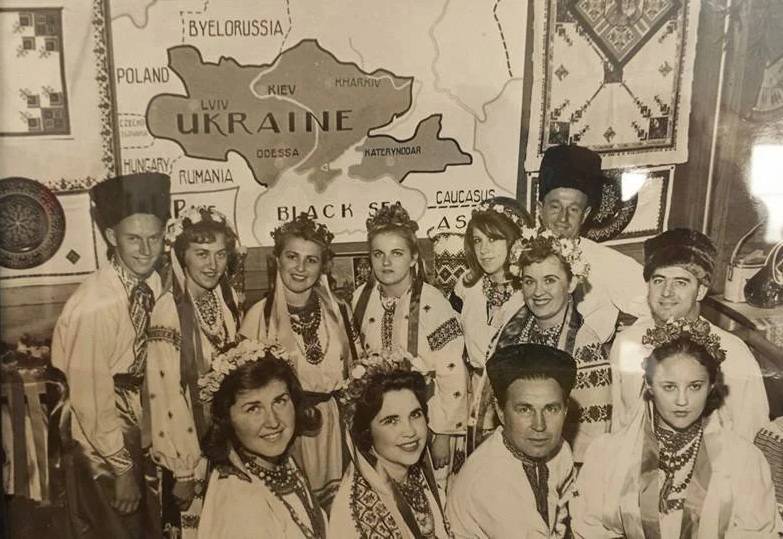
As a result, everything naturally ended in collapse. The parliament looted the regional treasury, devastated the rich grain-growing region, and the crown of all this was the Novorossiysk disaster. The legendary pilot Vladimir Kokkinaki later recalled these terrible years. Once on the street Volodya, still quite a boy, he witnessed how two armed lads, chatting on a crooked little gown, shot a passerby to pull off his boots.
Network Independents
It would seem that everything is finish. History itself has shown the incapacity of the Kuban independents, who, in the wake of Moldavian nationalists, independently desire this very independence to sell to another country. But not everything is so simple in the modern world. As far back as the end of the 90, as part of various programs in the Kuban, very specific historians, ethnographers and linguists were drawn from Ukraine. Fortunately there was no shortage of such “scientists” in Ukraine. Immediately after the collapse of the Union, institutions such as the National Academy of Public Administration under the President began to grow like mushrooms in Ukraine.
The feeding of these institutions by Ukrainian nationalism was stuffed to the eyeballs, and we can judge the level of professionalism by at least such a happy holder of an Academy diploma as Prime Minister Aleksey Goncharuk. And since before the 2014 year, Ukraine was partly positioned as a fraternal country through the efforts of the media and influence groups, the false theories about the Ukrainian roots of the Kuban were listened with suspicion, but favorably. Even propaganda ravings about the fact that the Kuban balachka is not just a South Russian dialect, but a branch of the Ukrainian language, which is the original language of the Kuban, took place.
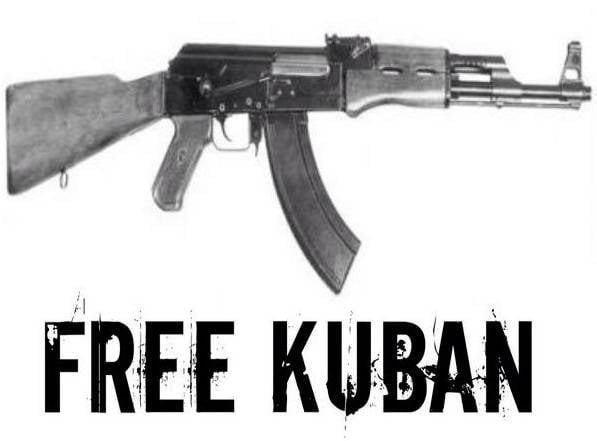
Over time, wet dreams of a foreign land echoed on the Internet. The VKontakte group was born with a wild ultra-right bank and echoes of Nazism called the Kuban People’s Republic. At the same time, the posts in this group are exactly repeating the traditions of political unscrupulousness of the farm Council of the beginning of the 20 century. Here is the shaman Alexander, and some kind of liberation army, and the imposition of a “non-native” Russian language, and the call to overthrow the Dulles plan and begin the revival of the ... Russian nation. As a result, all this ideological vinaigrette is aimed only at inciting hatred and political chaos within Russia. At the same time, the overwhelming majority of the group’s members live, of course, in Ukraine, however, they water their opponents with Russian obscenities.
But this was only the first sign of network wrestlers. Now the full-fledged website of the “Kuban People's Republic” is functioning and regularly updated on the network, using the official colors of the flag and the symbols of the Krasnodar Territory. Behind the screen of the "republic", the falsification of the Ukrainian Kuban is being actively promoted. At the same time, the nationalistic character is emphasized by the extremely complementary form of submission of materials about skinheads and other far-right marginals. The resource was added to the point that in the article about the cannibalistic personality, Goncharenko “photographed” this fighter for this “fighter”. These provocateurs are actively working on other resources - from social networks to video hosting. Why the competent authorities have not yet paid attention to such attempts, giving the incitement of ethnic hatred and open calls for the dismemberment of the state, the author does not know.
It would seem that a couple of marginal resources and wet mrii of Ukrainian figures, whose country is spreading in parts. However, in the modern world of information bacchanalia, even this is a serious groundwork, which in the future will easily be able to put together about a dozen crooks whose activity in a nuclear reactor is aggravated by a fierce inferiority complex. And after acquiring the necessary uniforms, this bunch turns into "Cossacks" - it's time to go out to the square. One or two biting slogans, and here the reputation of the whole region is in question, not counting the attitude to the Cossacks. And if a hundred or two eco-activists can cause a transport collapse in London, then the consequences of such manifestations with a nationalist soul can be much more serious.
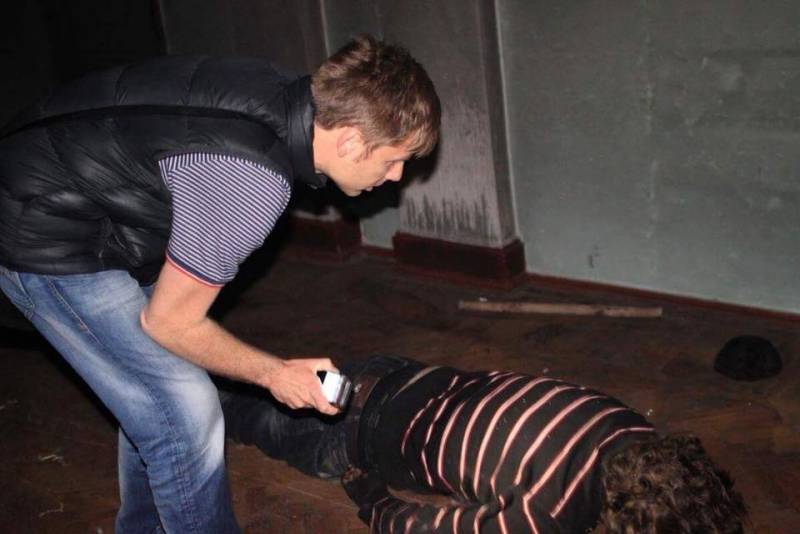
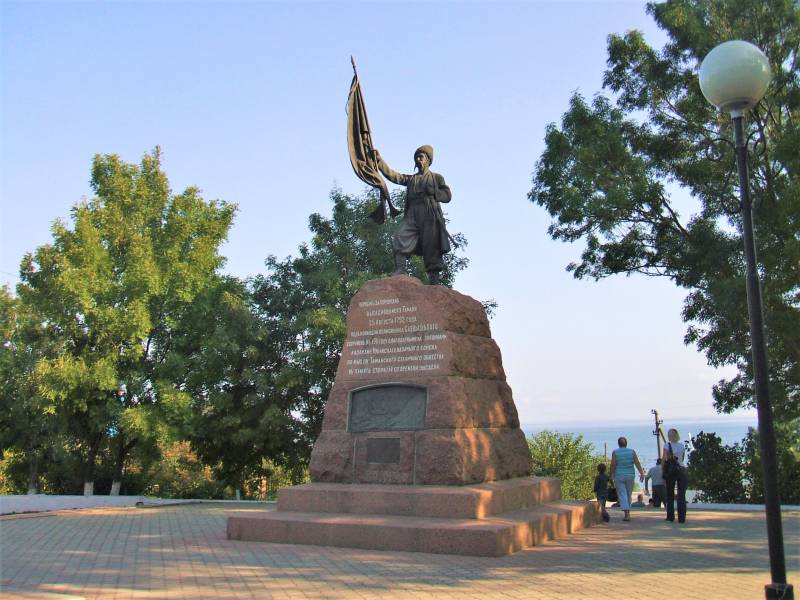
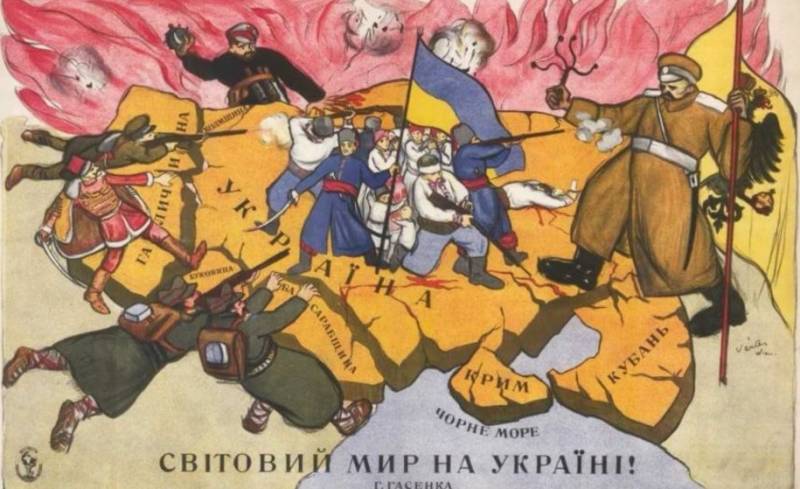
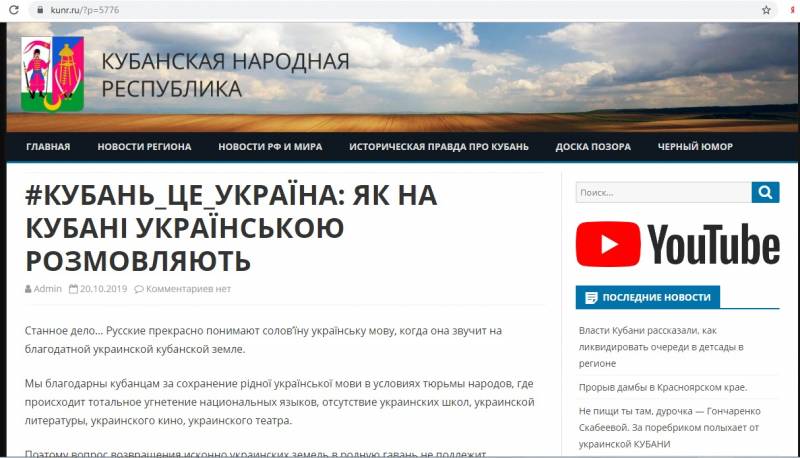
Information